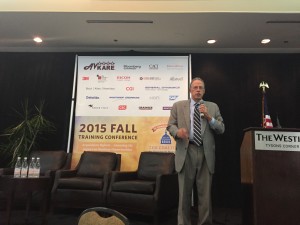
Industry: Government’s ‘biggest buyer’ claim isn’t true
The federal government's claim to be the 'world's biggest customer' is apparently rubbing a lot of vendors the wrong way.
The federal government’s strategic sourcing, shared services and category management initiatives all share at least one core principle: leveraging the buying power of the federal government.
Of course the U.S. government is the world’s biggest customer when you add all of the spending together. And it’s logical that such a customer would want to leverage its buying power to the last possible dime. So no one should be surprised about initiatives like the new OMB mandate to buy computer hardware through one of five standard configurations, and to buy them through one of three governmentwide acquisition contracts that already make those products available.

But the government’s claim to be the “world’s biggest customer” is apparently rubbing a lot of vendors the wrong way, as I learned today at the Coalition for Government Procurement’s 2015 Fall Training Conference. CGP President Roger Waldron (who also hosts “Off The Shelf” on Federal News Radio) invited me to co-moderate the luncheon, in which we sparked an audience discussion on five major points the audience considered in the morning sessions. Roger got in one of the biggest applause lines of the event when he said about the “biggest customer” claim: “I wish they [the government] wouldn’t say that.”
After the applause died down, a representative of a large vendor that also has a considerable commercial business tore into the whole idea. This vendor believes the government is making it harder and harder to convince leadership at commercial companies there’s a business case for doing business with the government. He expects a commercial vendor exodus from the federal space, just as the government is saying it wants more commercial companies to get into the game.
One particular sticking point: the possible development of a platform for companies to offer goods and services for sale in what many attendees referred to as an Amazon-for-government platform (one person suggested Amazon.gov; another suggested AmazonFederal.com). This speaker said, in essence, we are expected to upload information into GSA Advantage already. If this comes about, we will be expected to upload into that. He said the layering-on of cost after cost after cost, plus the six to 24 month turnaround time to get on a contract vehicle, is what he ultimately believes will drive commercial companies out of the federal space. He pointed out that Wall Street judges companies by quarters, and so commercial companies judge themselves — and their salespeople — the same way. And he was not alone. Other attendees confirmed that speaker’s sentiments during the break immediately after lunch.
The good news is, the federal government has a large knowledge base nearby with lots of experience in taking costs out of their businesses. My one main takeaway from today’s event: those vendors want to help the government take costs out of the acquisition chain, but they don’t think anyone wants their help.
Copyright © 2025 Federal News Network. All rights reserved. This website is not intended for users located within the European Economic Area.
Related Stories



